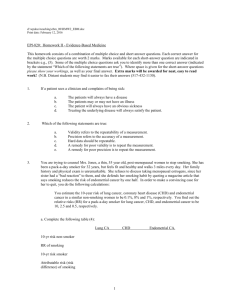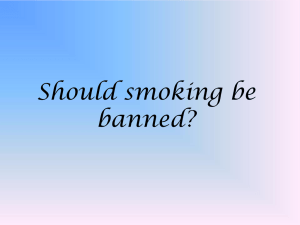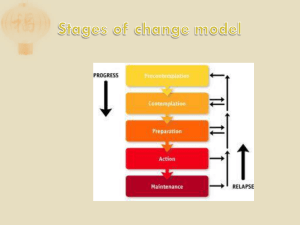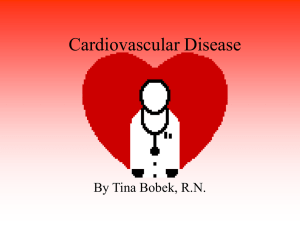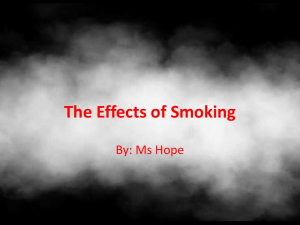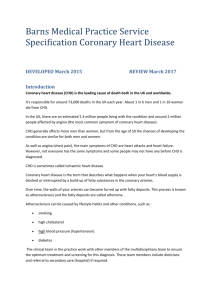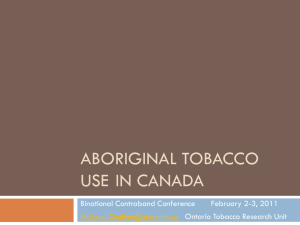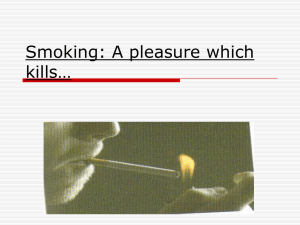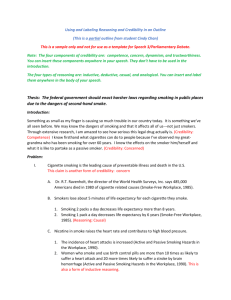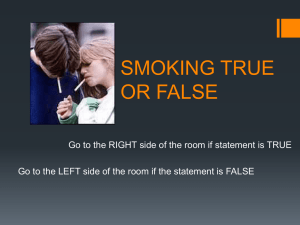Psychological aspects of illness and well
advertisement
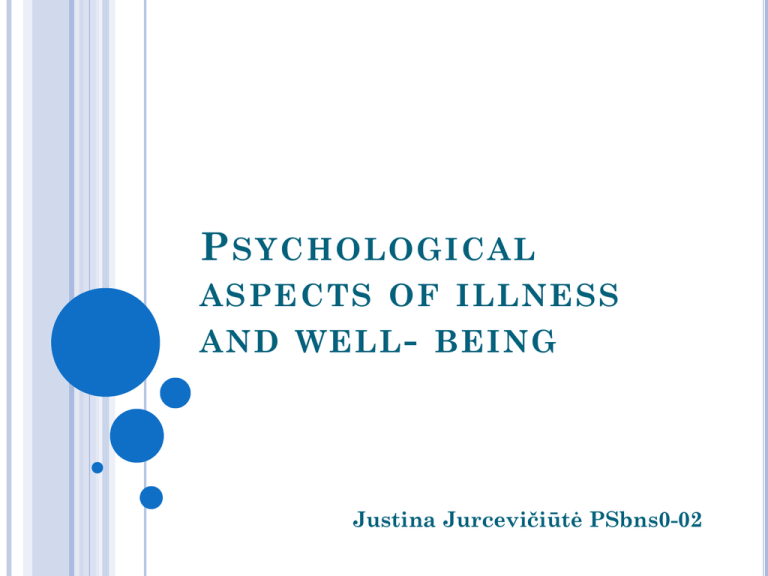
P SYCHOLOGICAL ASPECTS OF ILLNESS AND WELL - BEING Justina Jurcevičiūtė PSbns0-02 CONTENT 1. 2. 3. Coronary Heart Disease Cancer Smoking VOCABULARY Exaggerate – to make something seem better, larger, worse etc than it really is. Arouse – to make someone have a particular feeling. Hostility – unfriendly feelings or behaviour. Tumour – a group of disease cells in someone’s body that grow too quickly Tissue – the material forming animal or plant cells. CORONARY HEART DISEASE (CHD) CHD, the most common type of coronary disease, which has no clear etiology, has many risk factors, including smoking, radiotherapy to the chest, hypertension, obesity, diabetes, having a Type A behavior pattern and hyperlipidemia. Type A behavior pattern Type B behavior pattern Hostility Competitiveness Time urgency Feeling driven Patience Cooperativeness Noncompetitive manner Nonaggressive manner HOSTILITY CHD Increase in heart rate and blood Epinephrine, norepinephrine pressure Excessive psychological arousal Hostility CANCER Cancer is a class of diseases in which a group of cells display uncontrolled growth, invasion that intrudes upon and destroys adjacent tissues, and sometimes metastasis, or spreading to other locations in the body via lymph or blood. Percentage of patients alive or dead ten years after the operation SURVEY SMOKING Smoking is a practice in which a substance, most commonly tobacco or cannabis, is burned and the smoke is tasted or inhaled. Smoking is linked to: Cancer, Heart attacks, Strokes, Bronchitis, Emphysema. Smoking Most smokers agree with the statement “Cigarette smoking frequently causes disease and death”. Almost three - quarters of the 48 million smokers in the USA say they would like to quit. Worldwide, close to 5 million people die each year from the effects of smoking. THINGS, WHICH INDUCE PEOPLE TO SMOKE: 1. Society and culture 1.1. Art 1.2. Music 1.3.Film 1.4. Literature 1.5. Economics 2. Thinking, that it’s not addictive 3. Friends pressure 4. Rebellion or defiance against their parents or people of authority. CONCLUSION Psychosomatic medicine is an interdisciplinary medical field studying the relationships of social, psychological, and behavioral factors on bodily processes and well-being in humans and animals. The influence that the mind has over physical processes — including the manifestations of physical disabilities that are based on intellectual infirmities, rather than actual injuries or physical limitations — is manifested in treatment by phrases such as the power of suggestion, the use of "positive thinking" and concepts like "mind over matter". REFERENCES R. Feldman, “Understanding Psychology”, New York , 2008 Active study dictionary, Longman, UK, 2005 http://en.wikipedia.org/wiki/Coronary_disease http://www.helpwithsmoking.com/why-peoplesmoke.php Pictures: http://www.corbisimages.com/Enlargement/4220313654.html http://www.dhss.delaware.gov/dhss/dph/dpc/smoki ng05.html All watched at 2011.02.03 T H AN K Y O U , FO R YO UR ATTENTIO N Do You have any questions?

